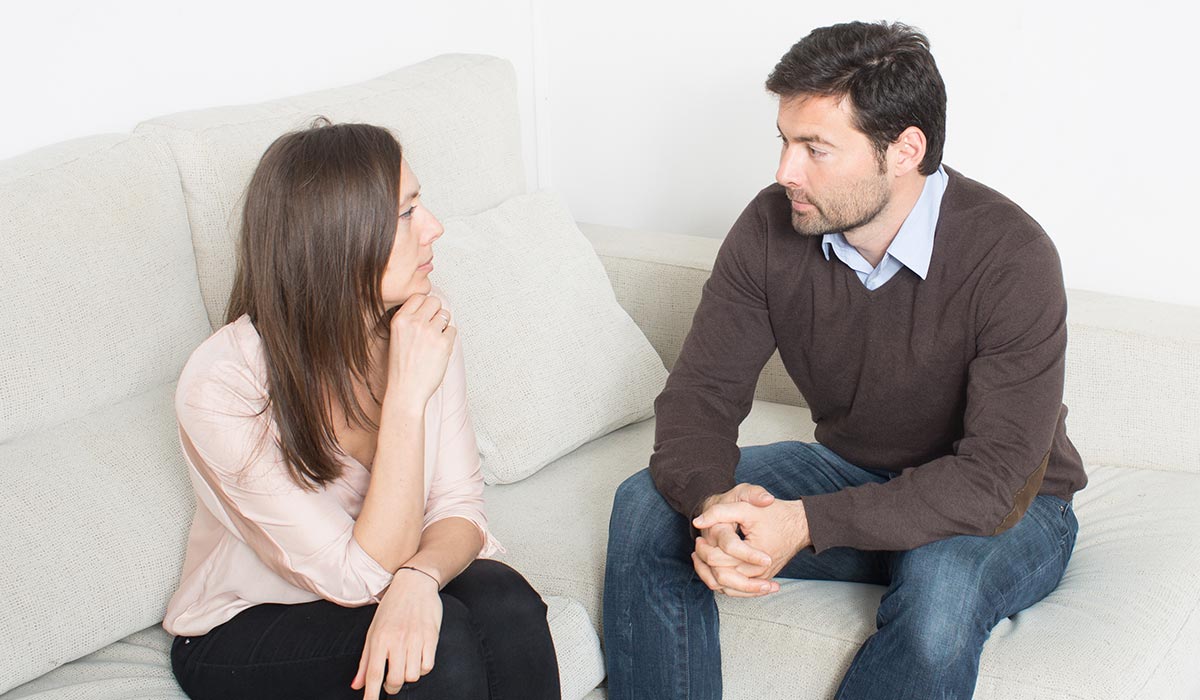Why therapy is different for men
Published in Blog by Tavistock Relationships on July 21st 2016

Why seeking relationship help can pose a particular difficulty for some men: Rueben’s and Maya’s story (names and other details changed to respect confidentiality)
Background
I have a successful career, working as a freelance journalist and had been with my partner, Maya, for five years. I’d describe us as a classic urban couple, busy happy - no kids but a much loved cat! Really our problems were hard to define, we had a consistently bad patch where we didn’t appear to be on the same page, triggered by a variety of situations and ongoing disagreements about our extended families and that kind of thing.
My initial reaction was not only that I didn’t feel keen to do this, but I also feared it might make things worse.
Maya had talked to friends about our seeing a professional together, but my initial reaction was not only that I didn’t feel keen to do this, but I also feared it might make things worse. I don’t consider myself to be ‘emotionally backward’ or anything like that - but I suppose that the TV image of people ‘over analysing’ things may have been behind my negative thoughts about going into couple therapy. Also I have a great faith in doing things yourself, fixing your own problems. I run my own business and if there is an issue at work I take a good look at it and try to put it right myself.
I could see that if I didn’t agree to our seeing someone together, Maya would take it as a sign of my lack of commitment to her. And I did want to sort things out. So I suppose you could say I felt that there was a sort of ultimatum, to go to therapy. Now I look back, it did feel like that but that makes me feel bad for Maya, given what came next.
The experience of therapy
In the first session, there I was, an unwilling participant, like a naughty child in front of a head teacher. Except, as the session unfolded, I developed a real rapport with the therapist. Okay, there I had felt a bit of dread at first but once you start talking you realise this is bringing you out of yourself and into a safe environment - and I realised it was about Maya and me, and that’s what matters. Then I found your cynicism goes – as you feel there’s no one judging you, no need for embarrassment, and that the therapy is a safe place to explore your feelings together.
I think probably one of the keys is talking about it earlier, not waiting to seek help until you and your partner are really not getting on.
Getting help earlier
I think probably one of the keys is talking about it earlier, not waiting to seek help until you and your partner are really not getting on [says Rueben]. That way a more open discussion can come and you are less entrenched and cynical. But failing that, it’s trying to have the mentality that, as in any walk of life, there are professionals in this field for a reason, the secrecy of therapy and mystique I think isn’t good for men who like straightforward answers, that are simple and painless.
In the end I was more positive about the session than Maya, which is why I talk about therapy and what it can do for men. Why should it not be masculine to want a better relationship and sex life? That’s pretty vital to me!
The thing I would say to those who can’t face reaching out is think about the alternative to committing an hour to talk about yourself, and compare it to multiple ongoing arguments and carrying withdrawn and negative feelings around on your back. Given that as a rational choice , I know what most of my friends would go for.”
[Story Ends]
Our view
At Tavistock Relationships we do find sometimes that men equate seeking emotional advice, assistance, or help with weakness, with being scared of giving the appearance of not being able to handle their own problems. What is not so well known is the fact that not dealing with or seeking help in relationship issues, in particular, often leads to a downward spiral of interconnected problems, poorer performance at work, lower self-esteem and wellbeing, and the onset of potentially chronic health problems, such as diabetes or heart disease and diminishing mental health.
Leading couple counselling and psychotherapy practice in London, the Tavistock Centre for Couple Counselling has 50 years of expertise in working to help relationships, and has noticed the consistent challenge of encouraging men to come forward.
Our approach works
We know that 70% of clients that come to see us rate as clinically depressed at time of seeking treatment. So if the problem of relationships is deemed as ‘women’s territory;’ or there is antagonism about the prospect of fixing the problem from a couple perspective, what about the argument about seeking help to help yourself?
We encourage anyone of whatever gender, orientation, race or culture to talk to a professional if things are getting on top of them.
There are a number of ways you can learn about seeing a psychotherapist of counsellor before you physically attend, and they can make things easier. You can read about the process of therapy on our website or else phone one of our clincal admin team to discuss your situation.
Therapy could be the start of a more positive life, as evidenced by our story above.
Get in touch.

© 2023 Tavistock Relationships. All Rights Reserved.
10 New Street, London, UK, EC2M 4TP - Tel: 020 7380 1975
Registered Charity Number: 211058. Tavistock Institute of Medical Psychology.
Company number: 241618.

© 2023 Tavistock Relationships. All Rights Reserved.
10 New Street, London EC2M 4TP
Tel: 020 7380 1975
Registered Charity Number: 211058. Tavistock Institute of Medical Psychology. Company number: 241618.

